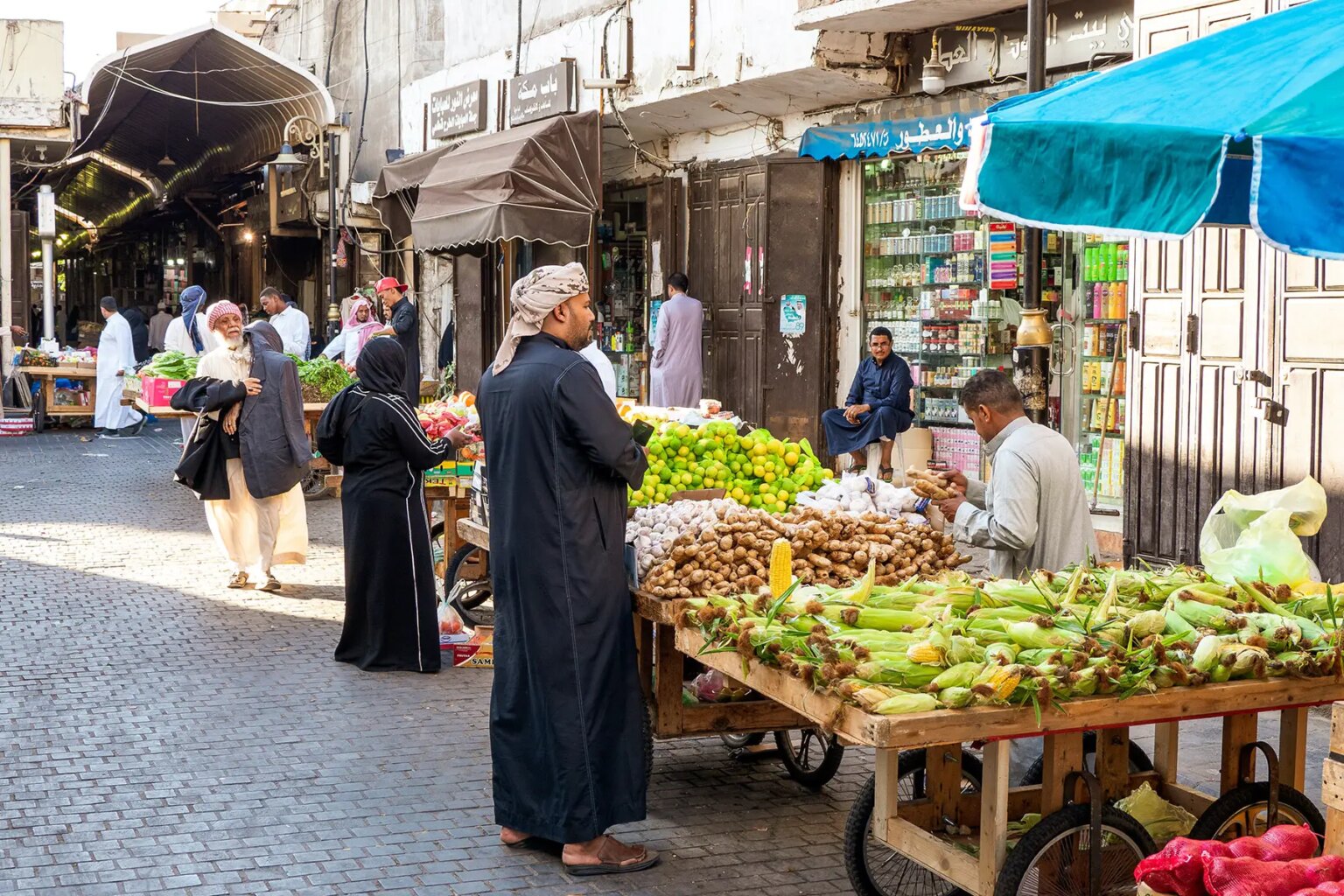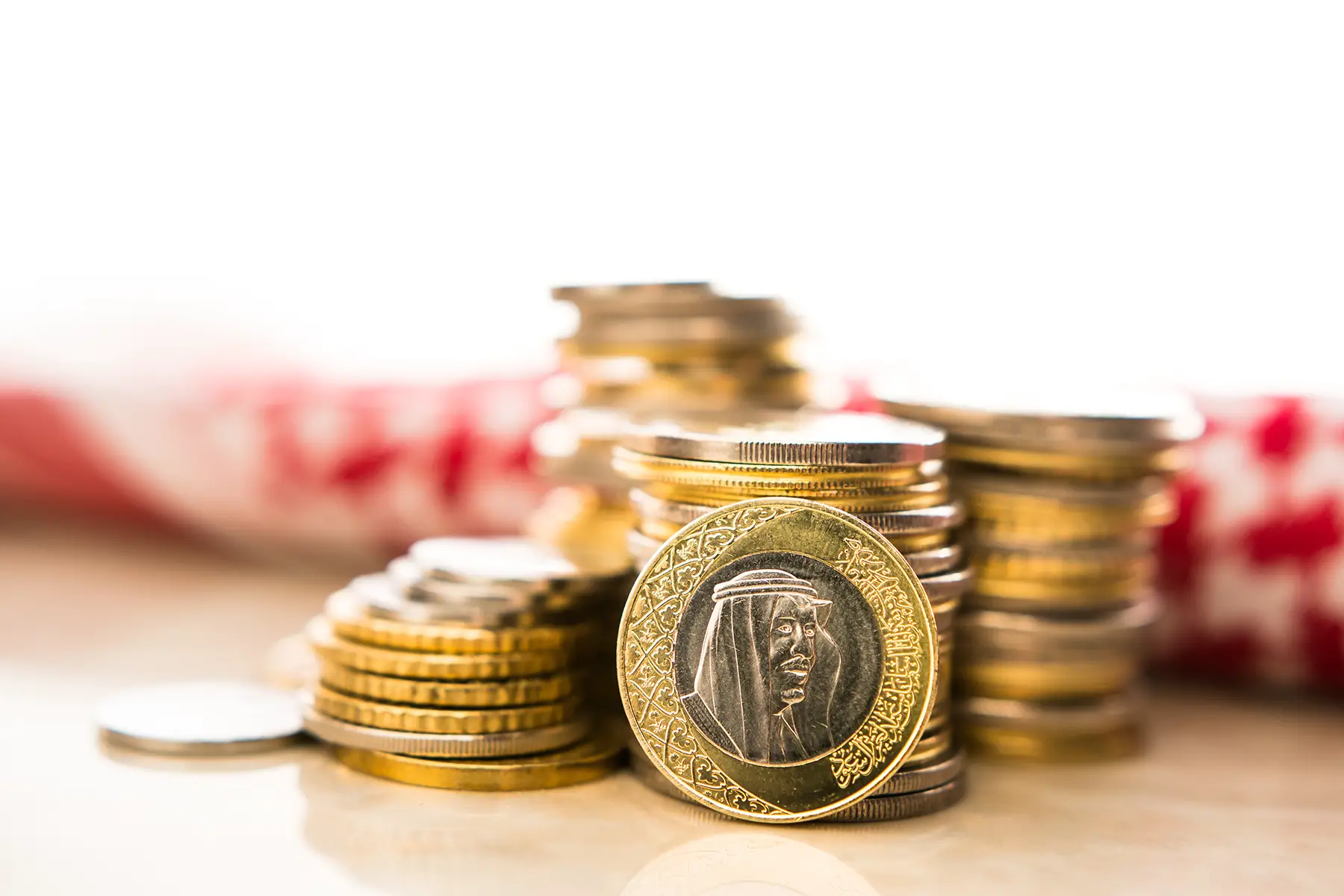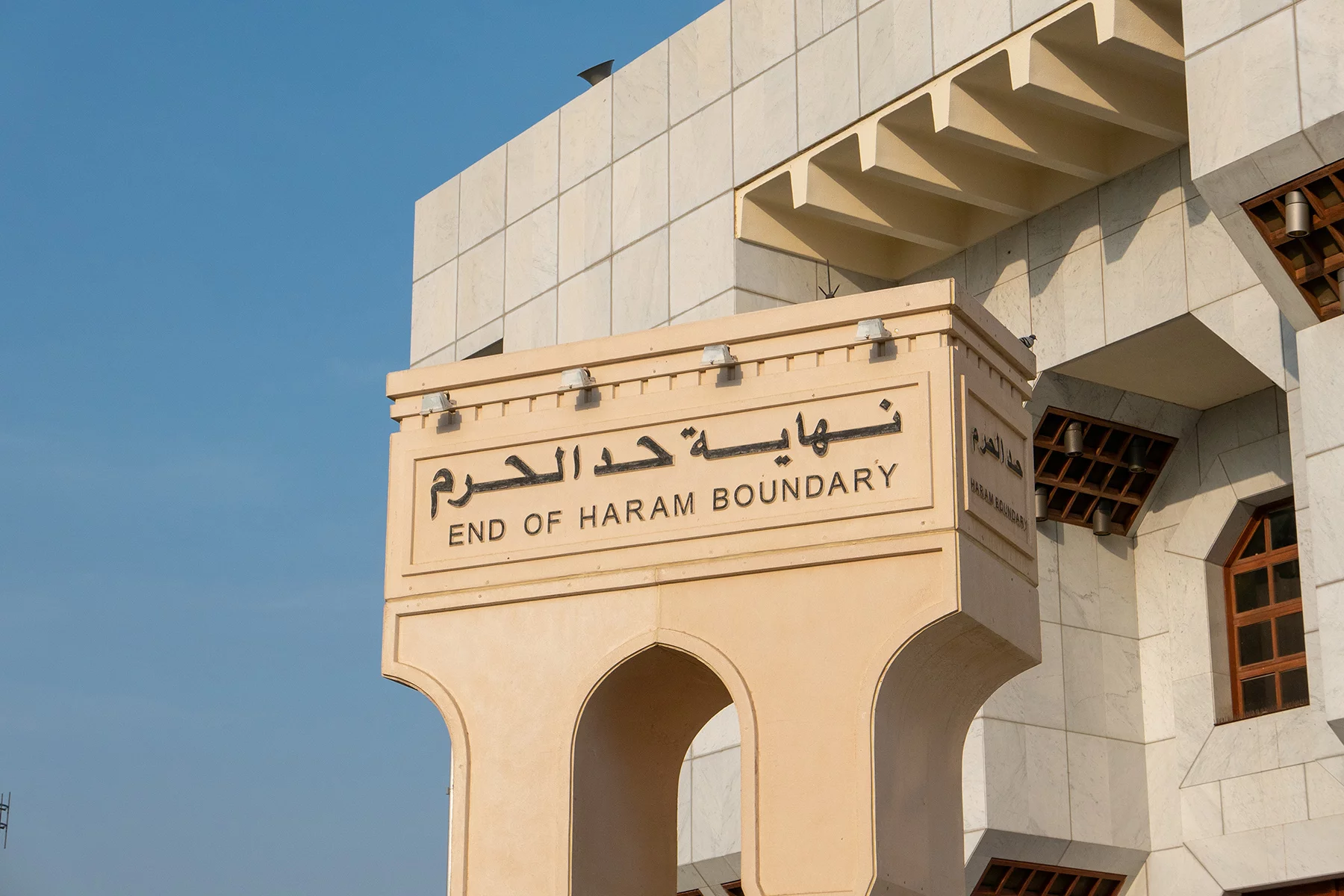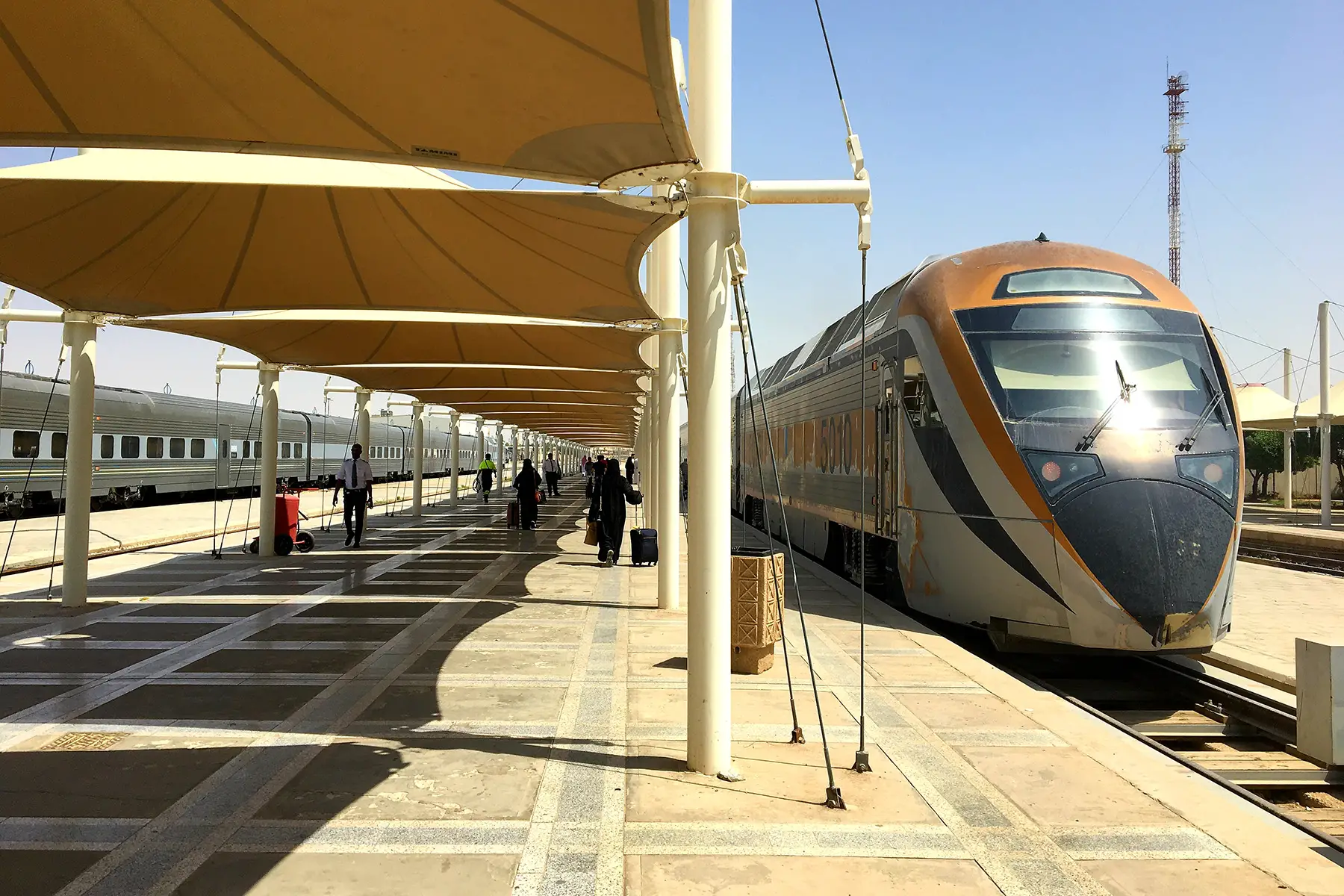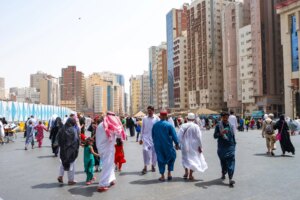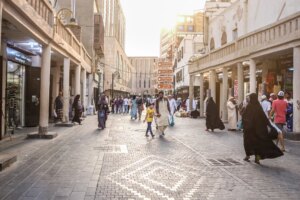The Kingdom of Saudi Arabia (KSA) is the richest country in the Middle East. Its cost of living – especially in the two largest cities, Jeddah and Riyadh – is comparable to other major hubs around the world. But, salaries are high, and if you budget right, you will likely (maybe) have a comfortable life there.
From everyday expenses like groceries and utilities to housing and healthcare, here’s a clear picture of what it really costs to live in Saudi Arabia and help you prepare for your new adventure.
Continue reading for the following information:
Is Saudi Arabia’s economy good?
Saudi Arabia is – perhaps unsurprisingly – the richest country in the Gulf Cooperation Council (GCC). Its 2024 gross domestic product (GDP) is US$1.1 trillion (or US$33,040 per capita), which the International Monetary Fund (IMF) predicts will grow by 3.3% in 2025 and 4.1% in 2026.

Inflation and disposable income in Saudi Arabia
Of course, the GDP per capita doesn’t mean all Saudi residents have 33K to spend. According to Statista (2025), the actual disposable income per household is US$18,260 per year (or US$1,522 per month). The Saudi government is currently working on the 2023/2024 Household Income and Expenditure Survey (HIES), which will provide more details on household spending.
In 2021, ESCWA reported that 13.6% of Saudi Arabia’s citizen population lived below the poverty line. While not an official statistic, Statista forecasts that number to be around 6.1% in 2025. You can learn more about average salaries and incomes in our article on minimum wage in Saudi Arabia.
In terms of inflation, Saudi Arabia’s average headline inflation for 2025 is expected to be 1.7%, way below the Gulf Cooperation Council (GCC)’s average of 3.4%.
The cost of living in Saudi Arabia in 2025
Unfortunately, the results of the 2023/2024 HIES survey have not yet been published. This article will therefore use Statista’s estimations of Saudi Arabia’s household expenses. In 2024, people are expected to spend US$1,109 (or SAR 4,159) per month.

Keep reading for an overview of the cost of living expenses you might come across in your daily life.
The price of groceries in Saudi Arabia in 2025
Beer, wine, and liquor
Being a staunchly Islamic country, alcohol is strictly banned in Saudi Arabia. Buying, being in possession of, or consuming alcohol is considered a crime against God, and punishments are severe. As a general rule of thumb, you are better off waiting until you are traveling abroad to indulge in a drink or two.
Food and drink
Food and non-alcoholic drinks are the second-largest expense after housing costs. In Saudi Arabia, households are expected to spend an average of SAR 747 per person per month on groceries (2025).
The average price ranges* of basic supermarket items include:
| Product | Price range | Product | Price range |
| Apples (1 kilo) | SAR 5.95–13.50 | Water (1 liter) | SAR 1.50–13.30 |
| Bread (1 loaf) | SAR 4.95–14.95 | Regular milk (1 liter) | SAR 4.80–6.25 |
| Vegetable oil (1 liter) | SAR 11.30–17.57 | Rice (1 kilo) | SAR 6.90–11.00 |
| Coffee (100 gram) | SAR 7.48–55.00 | Tea (per bag) | SAR 0.24–0.88 |
| Eggs (12) | SAR 5.98–15.16 | Tomatoes (1 kilo) | SAR 9.95–34.95 |
| Orange juice (1 liter) | SAR 4.95–16.22 |
Hygienic and household products
Hygienic and household products include everything from toothpaste and shampoo to dish soap (or washing-up liquid) and toilet bleach.

The average price ranges* of hygienic and household necessities includes:
| Product | Price range | Product | Price range |
| All-purpose cleaner (1 liter) | SAR 8.37–24.25 | Shampoo (200 ml) | SAR 11.79–29.60 |
| Deodorant (100 ml) | SAR 10.63–16.48 | Soap (1 bar) | SAR 6.00–28.95 |
| Dish soap (1 liter) | SAR 7.93– 28.75 | Sanitary pads (per pad) | SAR 0.38–0.58 |
| Garbage bags (per bag) | SAR 0.27–1.14 | Toilet paper (per roll) | SAR 1.20–2.50 |
| Laundry detergent (1 liter) | SAR 9.78–21.50 | Toothpaste (125 ml) | SAR 4.95–85.90 |
2025 housing costs in Saudi Arabia
In 2025, the average monthly housing costs in Saudi Arabia are forecasted to be SAR 1,125 per person. This likely includes rent and mortgage payments, water, electricity, gas, and other fuels.
Rent and property prices
Real estate prices vary greatly throughout Saudi Arabia. Villas in Jeddah (جِدَّة), Medina (المدينة المنورة), and Riyadh (الرياض) are comparatively more expensive than apartments in rural areas and less popular cities.
In January 2025, the average rent for a home is around SAR 7,949 per month. Potential homeowners paid an average of SAR 1.15 billion for a property.
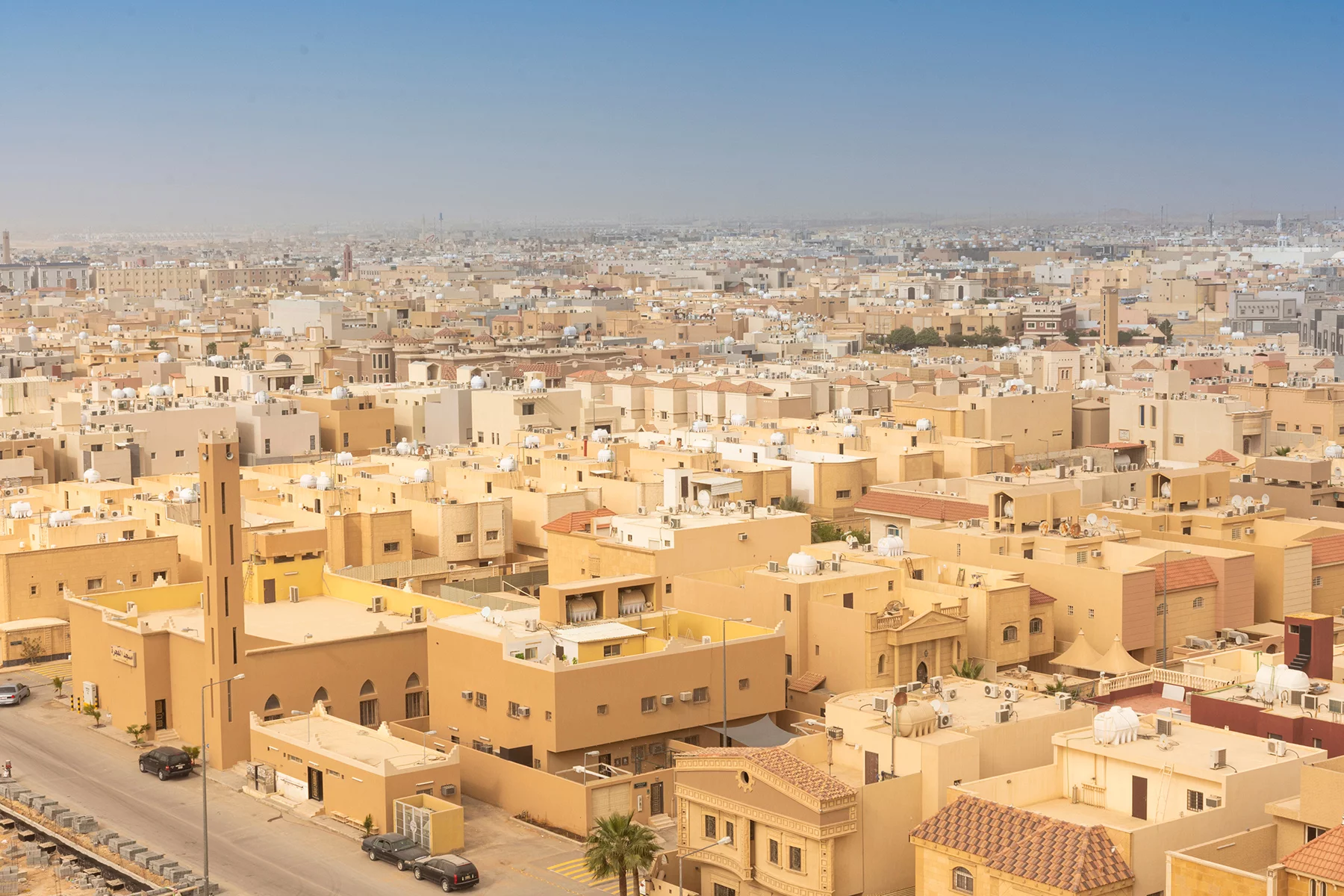
Depending on the location, you’ll pay the following average housing prices (Deloitte, Q4 2023):
| Dammam Metropolitan Area | Jeddah | Riyadh | |
| Average monthly rent (house) | SAR 3,333–10,000 | SAR 5,000–14,583 | SAR 5,000–30,000 |
| Average monthly rent (flat) | SAR 1,375–3,750 | SAR 1,200–6,250 | SAR 2,917–20,833 |
| Property price per square meter (house) | SAR 3,430 | SAR 5,150 | SAR 5,320 |
| Property price per square meter (flat) | SAR 3,545 | SAR 4,250 | SAR 5,050 |
The most expensive places are Al Khobar (الخبر), Dhahran (الظهران), Jeddah, and Riyadh. However, if you’re looking to live in Saudi Arabia on a budget, the cheapest cities to move to are:
| Abha | Ha’il | Najran | |
| Average monthly rent (city center) | SAR 1,375–2,125 | SAR 1,426–2,157 | SAR 1,850–2,250 |
| Average monthly rent (outside city center) | SAR 1,000–2,375 | SAR 1,050–1,067 | SAR 1,167–1,600 |
| Property price per square meter | SAR 2,947 | SAR 1,382 | SAR 1,655 |
Utility bills: water, gas, electricity
The Saudi government partially subsidizes utilities, so average costs for water, gas, and electricity remain low. Depending on your location, use, and property size, you can expect to pay around SAR 365–580 per month.
Keep in mind that many households rely on air conditioning units to keep things comfortable in the summer. As such, your utility bill may skyrocket during the hot summer months.

While heavily regulated, Saudi Arabia relies on private utility companies for their supply. As such, prices may differ per region and provider. For example, Marafiq (available in Jubail and Yanbu) charges the following for residential use of water (as of January 2025):
| Tariff | ||
| Water | 1–16 cubic meters | SAR 0.15 |
| 16–30 cubic meters | SAR 1.50 | |
| 30–45 cubic meters | SAR 4.50 | |
| 45–60 cubic meters | SAR 6.00 | |
| 60+ cubic meters | SAR 9.00 |
Electricity from the Saudi Electricity Company costs SAR 18 kilowatt/hour for residential use up to 6,000 kilowatt/hour. Above that, it charges SAR 30 kilowatt/hour.
Most residences in Saudi Arabia are outfitted with a GASCO LPG gas cylinder, used for cooking. In 2025, a 26.5-liter cylinder costs SAR 150. You can also get a newer fiberglass cylinder for SAR 290.
Discover more about utility prices and providers by reading our article on utilities in Saudi Arabia.
The cost of Saudi healthcare
Saudi Arabia provides free or subsidized public healthcare to all its citizens. Expat residents must take out private health insurance (تأمين صحي) to cover any medical bills. In 2025, the average monthly healthcare costs are expected to be around SAR 63 per person.

While employers typically include health insurance in their employment benefits package, medical coverage varies per policy. If you are accident-prone, you may want to take out an additional insurance policy.
Our article on health insurance in Saudi Arabia explains more about private healthcare and coverage.
Internet and telecom prices
The cost of internet and other telecommunication services varies depending on several factors, including your provider, location, and the type of connection or service. For example, OSN Global TV packages start from SAR 159 per month. Meanwhile, you can get a Mobile prepaid package from the government-run Saudi Telecom Company (STC) starting from as little as SAR 97.75 per month.
Statista expects the average monthly communication costs in 2025 to be around SAR 225 per person.
The cost of clothing and footwear
The price of clothing and footwear in Saudi Arabia is in line with other countries around the world, depending on your brand of choice. Of course, designer clothing and accessories are more expensive due to import taxes.
In 2025, people are expected to spend a monthly average of SAR 141 per person on their attire.
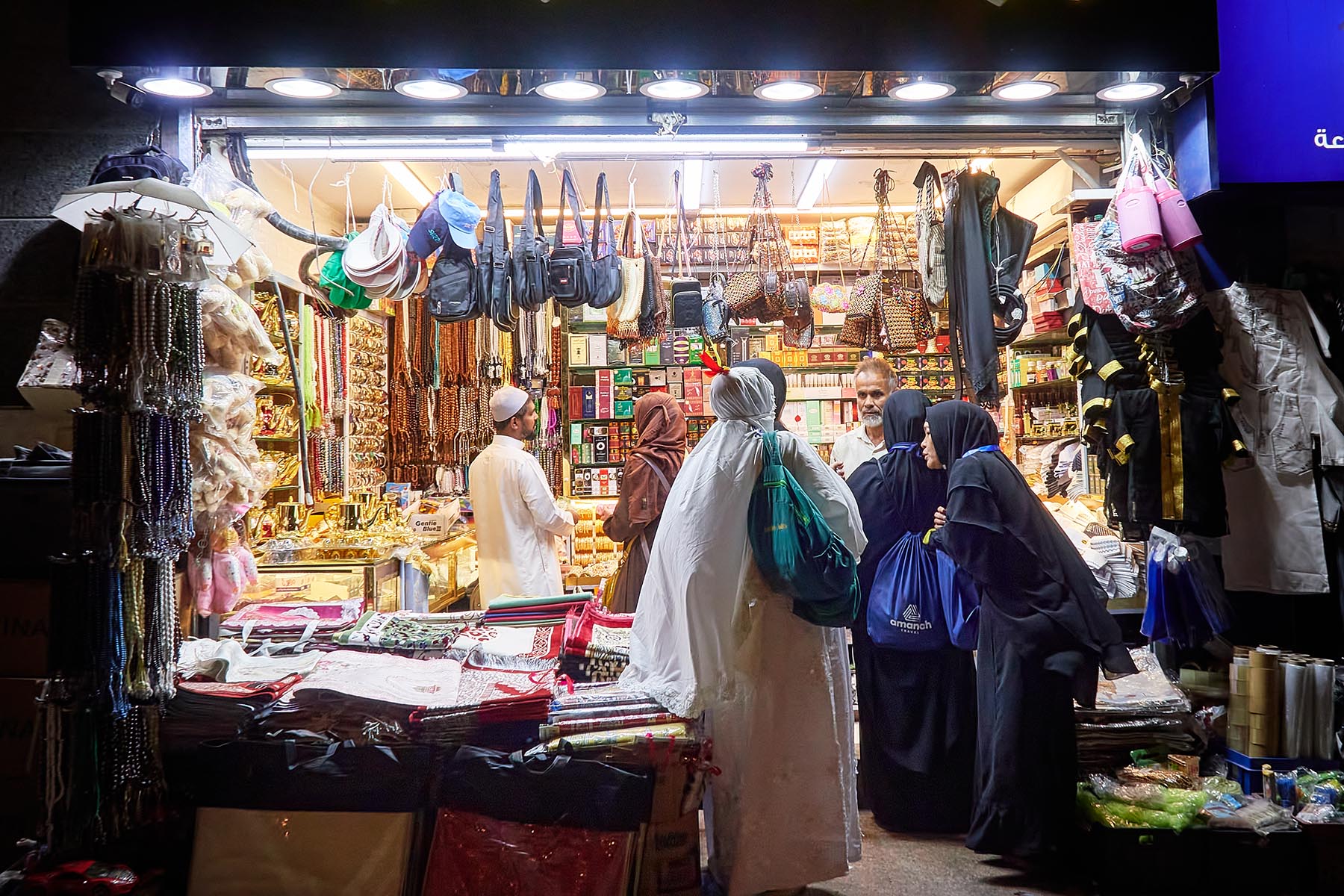
The prices vary greatly per item. For example, you can expect to pay between SAR 3.50–37.80 for underwear. Meanwhile, dresses or jeans cost SAR 80–400, and shoes around SAR 120–400.
The cost of transportation in Saudi Arabia
In 2025, the monthly average cost of transportation in Saudi Arabia is predicted to be SAR 638 per person.
Public transport
As might be expected, Saudi Arabia’s public transport network is less developed than, for example, Singapore’s. Although the country has promised heavy investments in public transport by 2030, progress remains slow.
The public travel options that are available (e.g., buses, metros, and trains, depending on your location) are efficient and generally cost-effective. Fares vary by mode of transport. For example, a single city bus trip costs SAR 3.45–11.50, while an economy train ticket from Riyadh to Dammam will set you back SAR 110–135.
If you are planning to commute to work, it’s recommended you look into getting a monthly plan to travel at a discounted cost.
Driving and vehicle costs
Cars are the primary method of transportation in Saudi Arabia. While driving (or being driven) presents a lot more freedom, it’s also generally more expensive than public transport. Car owners pay an average of SAR 49,500–66,000 per month for the use and maintenance of their vehicle.
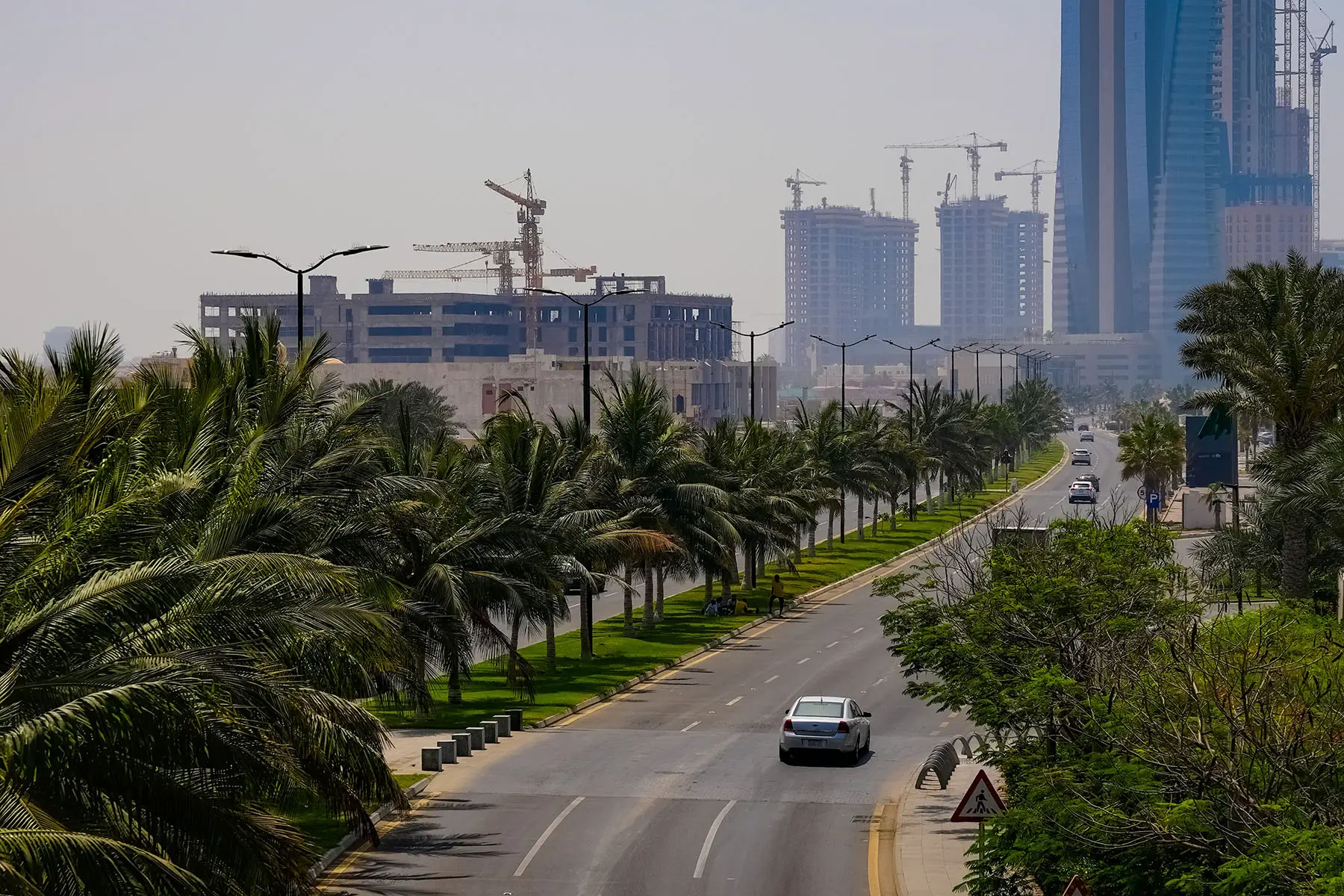
Beyond the initial costs of lessons, a driving license, and the actual purchase of the vehicle, you’ll need to budget for:
- Car insurance – the mandatory Third Party Liability insurance cost between SAR 125–667 per month
- Fuel costs – as of January 2025, gasoline costs SAR 2.33 per liter, and diesel costs SAR 1.66 per liter
- Maintenance – Saudi Arabia’s hot, abrasive climate requires you to regularly maintain your car. Depending on your vehicle’s make and model, servicing can start anywhere from SAR 500 to SAR 1,500.
For more about driving costs, mandatory insurance, and exchanging your foreign driver’s license, see our article on driving in Saudi Arabia.
How much does leisure and entertainment cost?
It should be noted that expats, especially women, may feel a bit restricted in their leisure activities. In Saudi Arabia, gender segregation is the norm, and social etiquette is different from what many are used to.
Movie theaters and cinemas
A standard cinema ticket in Saudi Arabia costs around SAR 34–39, depending on the location and the screening. Prices are the same on both weekdays and weekends.
Restaurants
The estimated monthly spending is SAR 216 per person on hospitality and restaurants.
With inflation rising and the introduction of a new value-added tax, the cost of restaurants in Saudi Arabia is increasing. That said, a range of affordable dining options are always available.
A simple meal in a basic eatery usually costs around SAR 30–80, while a fancy dinner in a lavish setting may charge up to SAR 400. Of course, restaurants are more expensive in expat areas.

Sports
Saudi Arabia has seen a significant increase in gyms in recent years. Memberships cost around SAR 325–600 per month, depending on the gym and location. If you sign up during Ramadan, you may get a discounted deal.
It’s recommended you try out different clubs before signing up for a membership.
The cost of Saudi education and childcare
Childcare
Working parents with (young) children may need to arrange for childcare from time to time. In Saudi Arabia, options include daycares, nurseries, and preschools or kindergartens. In addition, companies that employ more than 50 female employees are legally required to provide childcare during office hours.
All daycare centers and nurseries are privately operated, and the average monthly cost for these can vary greatly. Depending on the location, you’ll pay between SAR 500 and SAR 2,000 per month.
It’s rare for families to hire a nanny or au pair. Instead, most people have housemaids and entrust childminding duties to them.
Children’s education
The public school system in Saudi Arabia offers free and good-quality schooling to Saudi nationals and foreign Muslims. Parents will only need to pay for books, materials, and the occasional outing.
Parents who prefer to (or must) send their children to an international or private school must pay tuition fees. These vary widely depending on your child’s grade and the school’s curriculum, location, and reputation.

For example, the annual cost for a kindergartner at an international school ranges from SAR 18,500–35,000 per year. Tuition fees for high school students start from SAR 22,500 and can go up to SAR 100,000/year. Parents will also need to take into account the costs of transport, uniforms, extracurricular activities, and materials.
Discover more about school curriculums and fees in our article on international schools in Saudi Arabia.
University tuition fees
Studying in Saudi Arabia is relatively affordable compared to some other countries.
The cost of a university degree varies greatly per university and study program. Some charge SAR 29,000–32,500 per year, whereas others will set you back SAR 50,000–100,000 per year. Often, international students pay more than Saudi students as well.
Find out more about degree programs and costs by reading our article on studying in Saudi Arabia.
How does Saudi Arabia compare to the rest of the world?
Saudi Arabia receives mixed reviews when it comes to standards of living. For example, the country ranks 37th in the world on the Human Development Index. Similarly, the Saudi cities of Riyadh, Jeddah, and Al Khobar have made strong gains on the Global Liveability Index 2024. They were previously ranked below 100.
The highest Saudi city on the 2024 Mercer’s quality of living index is Riyadh (164th), closely followed by Jeddah (169th). This performance is well below other major capitals like New York (45th), Rome (59th), Seoul (81st), Cape Town (105th), Bangkok (124th), and Jakarta (148th).

The cost of living in Riyadh
Compared to other capital cities, Riyadh’s cost of living is (as of January 2025):
- 62.6% cheaper than New York (the US)
- 46.7% cheaper than London (the UK)
- 36.9% cheaper than Amsterdam (the Netherlands)
- 79.6% more expensive than Jakarta (Indonesia)
- 145.3% more expensive than Delhi (India)
- 166.1% more expensive than Dhaka (Bangladesh)
- 176.6% more expensive than Islamabad (Pakistan)
The cost of living in Jeddah
Jeddah is Saudi Arabia’s second-largest city, with an estimated population of roughly 4.9 million people (2024). It is the country’s commercial center and the principal gateway to Mecca Sharif, the holiest place in Islam.
The cost of living in Jeddah is about a quarter cheaper than in Riyadh (as of January 2025). Compared to other major cities, it is:
- 71.7% cheaper than New York (the US)
- 59.8% cheaper than London (the UK)
- 52.4% cheaper than Amsterdam (the Netherlands)
- 35.5% more expensive than Jakarta (Indonesia)
- 85.1% more expensive than Delhi (India)
- 100.8% more expensive than Dhaka (Bangladesh)
- 108.7% more expensive than Islamabad (Pakistan)
The cost of living in Al Khobar
Serving as the primary exporter of fuel, Al Khobar experienced rapid growth during and after the discovery of oil in Saudi Arabia. The port city is currently considered a resort town, with its beaches and view of Half Moon Bay (شاطئ نصف القمر).

Al Khobar’s cost of living is around 12.4% cheaper than in Riyadh, as well as:
- 69.2% cheaper than New York (the US)
- 56.1% cheaper than London (the UK)
- 48.0% cheaper than Amsterdam (the Netherlands)
- 48.0% more expensive than Jakarta (Indonesia)
- 102.1% more expensive than Delhi (India)
- 119.3% more expensive than Dhaka (Bangladesh)
- 127.9% more expensive than Islamabad (Pakistan)
Financial support for the cost of living in Saudi Arabia
Saudi nationals are entitled to social security benefits, depending on their living situation. Low-income households may apply for the Citizen’s Account Program (التسجيل في برنامج حساب المواطن), provided they meet all requirements. This benefit is SAR 1,000 per month for breadwinners, SAR 500 for dependent adult children, and SAR 300 for dependent minor children.
Other benefits that can help you with the cost of living in Saudi Arabia include:
- Advantages and Offers Programs – provides benefits, offers, and discounts to Saudi retirees
- Housing support – there are several programs, including for men, low-income families, and women
- Social loans – for carers looking after orphans and people with disabilities
- Social Pension – available for a wide range of situations, including orphans, people who are temporarily or permanently unable to work, seniors over 60, unmarried women, and unsupported families
The website of the Ministry of Human Resources and Social Development has more information about social security in Saudi Arabia.
Unfortunately, foreign expats are not eligible for government financial aid to help with the cost of living in Saudi Arabia. However, since zakat (زكاة – taking care of the vulnerable) is a crucial pillar of Islam, the country has numerous charities that can help.
Tips on how to save money in Saudi Arabia
All affordability is relative to your household income and size. A single bachelor may have more to spend than a family of four.
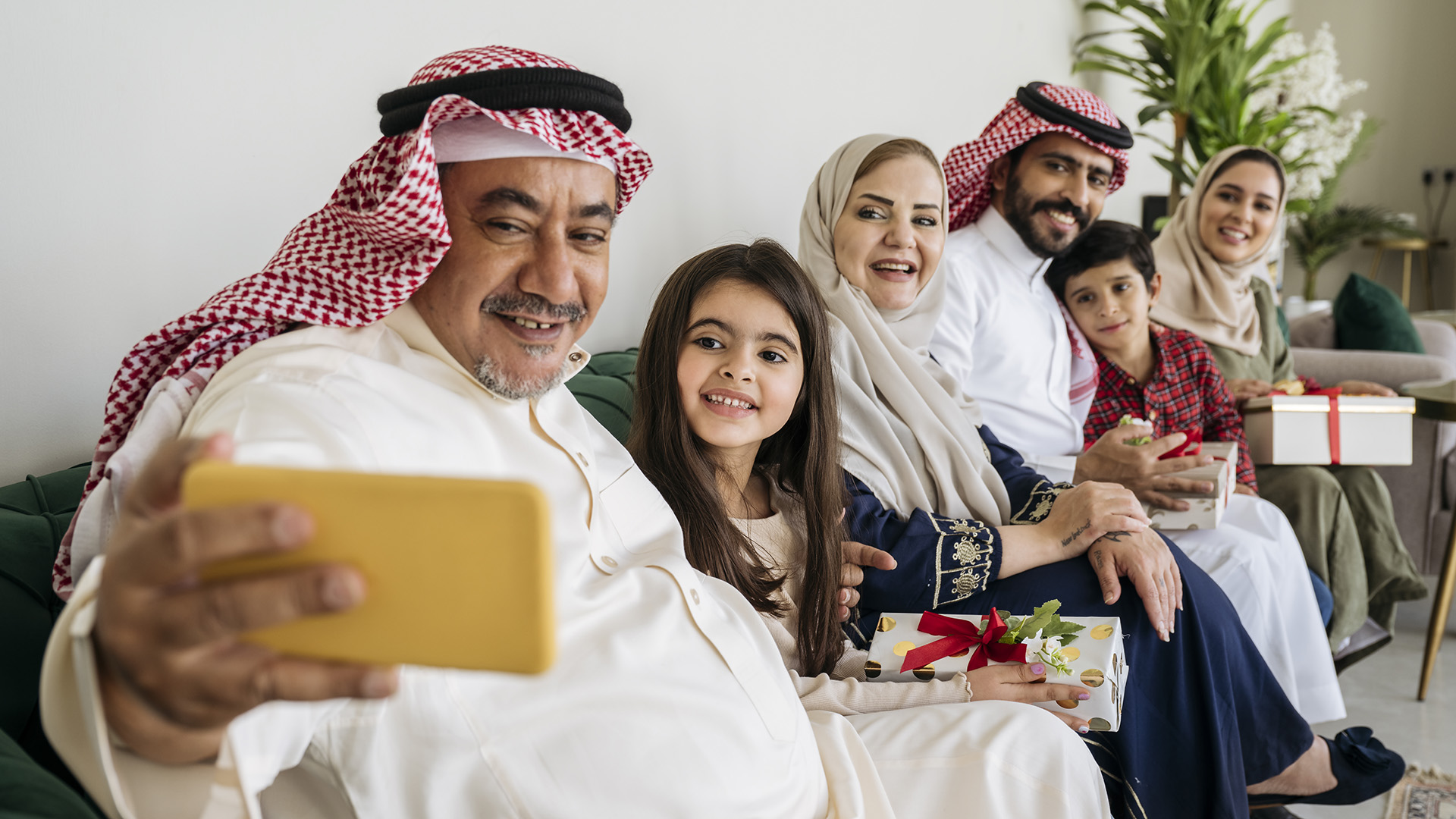
Here are some tips for saving money while living in Saudi Arabia:
- Shop smartly at local markets – local markets often have fresh produce, vegetables, and meats at a lower price than supermarkets. Local products are also sold at a better rate than imported goods.
- Plan meals ahead and buy in bulk – many hypermarkets, like Carrefour, Lulu, and Panda, offer frequent promotions and discounts, especially for bulk purchases. Time your visit well: there are extra discounted prices on weekends or during Ramadan.
- Dine out strategically – when you are eating out, look for local restaurants as these are cheaper than international chains. Also, be sure to take advantage of affordable buffet options during Ramadan or special promotions.
- Embrace ride-sharing services – while fuel is cheaper in Saudi Arabia than elsewhere, it can still pose a large expense. Use ride-sharing apps to lower your travel costs and make sure to drive outside peak times when fares can be significantly lower.
- Stay fit without splurging – use public parks for outdoor workouts instead of expensive gym memberships. Many expat communities also organize free or low-cost fitness sessions.
- Use energy wisely – save on electricity by insulating your home, using energy-efficient appliances, and taking advantage of off-peak energy tariffs (e.g., to do your washing).
- Buy your goods at sales and souks – Saudi malls are tempting, but try to shop during sales or major shopping festivals, especially before Ramadan and Eid, which offer huge discounts. Be sure to explore traditional souls (like Riyadh’s Al-Zal Market or Jeddah’s Al-Balad) as well; these often sell goods at a cheaper price than malls.
Useful resources
- Ministry Department of Consumer Protection – official government website of the department responsible for consumer protection and combating commercial fraud
- Saudi Food Bank (جمعية بنك الطعام السعودي) – official website of the Saudi Food Bank
